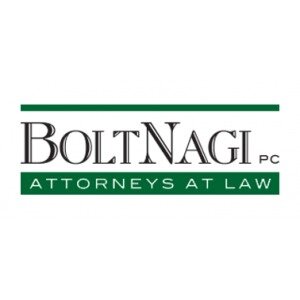Best Faith-Based Law Lawyers in British Virgin Islands
Share your needs with us, get contacted by law firms.
Free. Takes 2 min.
Or refine your search by selecting a city:
List of the best lawyers in British Virgin Islands
About Faith-Based Law in British Virgin Islands
The British Virgin Islands (BVI) is a small but diverse archipelago, home to a myriad of religious and cultural communities. Faith-Based Law in BVI refers to legal issues and considerations that arise within religious communities and organizations. This encompasses a broad spectrum including governance of religious organizations, protection of religious freedoms, property matters related to religious institutions, and any disputes that might arise under the auspices of religious doctrine or practice. The intersection of faith and law can be complex, requiring a nuanced understanding of both the local legal system and the particular religious norms involved.
Why You May Need a Lawyer
There are various scenarios where individuals or organizations in the British Virgin Islands may need legal assistance in Faith-Based Law:
- Conflicts or disputes within religious communities over governance, membership, or leadership.
- Disputes related to religious property ownership or property use issues.
- Issues around religious freedom, especially in relation to public policy or government regulations.
- Legal challenges or concerns about the relationship between secular laws and religious practices.
- Setting up or restructuring religious organizations to comply with local laws and regulations.
- Employment disputes within religious institutions.
Local Laws Overview
The British Virgin Islands operates under a mixed legal system comprising English common law and local statutes. Specific to Faith-Based Law, there are several key aspects to consider:
- Religious Freedom: The Constitution of BVI provides for the freedom of religion, ensuring that individuals and groups can practice their faiths without undue interference.
- Charity Law: Religious organizations often qualify as charities under local law, requiring adherence to specific governance and reporting standards.
- Property Law: Issues can arise when religious properties are involved in legal matters, necessitating knowledge of both local property law and the traditions of the religious organization in question.
- Employment Law: Religious institutions must adhere to local employment laws, balancing this with religious tenets.
Frequently Asked Questions
1. Can religious organizations own property in BVI?
Yes, religious organizations can own property in the BVI, but they must comply with both religious and secular property laws, including proper titling and usage declarations.
2. How are religious disputes typically resolved in BVI?
Disputes are often resolved within the religious community using customary procedures; however, they may also be subject to local legal systems when internal resolutions are not possible.
3. Do religious organizations need to register as charities?
In many cases, religious organizations must register as charities to benefit from legal and tax exemptions, with adherence to applicable regulations.
4. Are there legal protections for religious freedom in BVI?
The BVI Constitution provides for the protection of religious freedoms, with courts upholding these rights in various legal contexts.
5. Can faith-based traditions override local employment laws?
While faith-based practices are respected, they do not generally override local employment laws. Religious organizations must navigate both to ensure compliance.
6. Can religious organizations be sued in BVI?
Yes, religious organizations can face legal action, particularly regarding employment disputes, property issues, or organizational governance.
7. How does BVI law handle religious ceremonies and marriages?
Religious ceremonies must comply with local marriage laws to be legally recognized. This often involves registering the marriage with local civil authorities.
8. Is conversion to different faiths legally recognized?
Conversion is recognized under law, respecting the individuals' freedom of religion, though the process may be governed by the respective religious community’s norms.
9. What happens when a religious organization dissolves?
Local laws regarding the dissolution of organizations guide this process, ensuring proper distribution of assets and honoring any remaining legal obligations.
10. How can foreign religious groups operate in the BVI?
Foreign religious groups must fulfill specific registration and compliance requirements to operate legally within the BVI.
Additional Resources
There are several resources available for those seeking advice or assistance related to Faith-Based Law in the British Virgin Islands:
- BVI Bar Association: Provides referrals to lawyers specializing in faith-based matters.
- Registrar General's Office: Manages registration processes for charities and religious entities.
- Religious Councils: Many faiths have councils or boards that offer mediation and guidance.
- Non-Governmental Organizations: Some NGOs offer support and advisory services on religious freedom and associated legal matters.
Next Steps
If you require legal assistance with Faith-Based Law in the British Virgin Islands, consider the following steps:
- Clearly define the nature of your legal issue, including any specific religious or legal questions.
- Contact local lawyers with expertise in Faith-Based Law or related fields through platforms like the BVI Bar Association.
- Gather any relevant documents or information pertaining to your case, such as property deeds, organizational charters, or employment contracts.
- Consider reaching out to relevant religious councils or organizations for informal advice or mediation.
- Explore legal opinions or precedents that may influence your case, often available through legal databases or libraries.
Lawzana helps you find the best lawyers and law firms in British Virgin Islands through a curated and pre-screened list of qualified legal professionals. Our platform offers rankings and detailed profiles of attorneys and law firms, allowing you to compare based on practice areas, including Faith-Based Law, experience, and client feedback.
Each profile includes a description of the firm's areas of practice, client reviews, team members and partners, year of establishment, spoken languages, office locations, contact information, social media presence, and any published articles or resources. Most firms on our platform speak English and are experienced in both local and international legal matters.
Get a quote from top-rated law firms in British Virgin Islands — quickly, securely, and without unnecessary hassle.
Disclaimer:
The information provided on this page is for general informational purposes only and does not constitute legal advice. While we strive to ensure the accuracy and relevance of the content, legal information may change over time, and interpretations of the law can vary. You should always consult with a qualified legal professional for advice specific to your situation.
We disclaim all liability for actions taken or not taken based on the content of this page. If you believe any information is incorrect or outdated, please contact us, and we will review and update it where appropriate.
Browse faith-based law law firms by city in British Virgin Islands
Refine your search by selecting a city.









